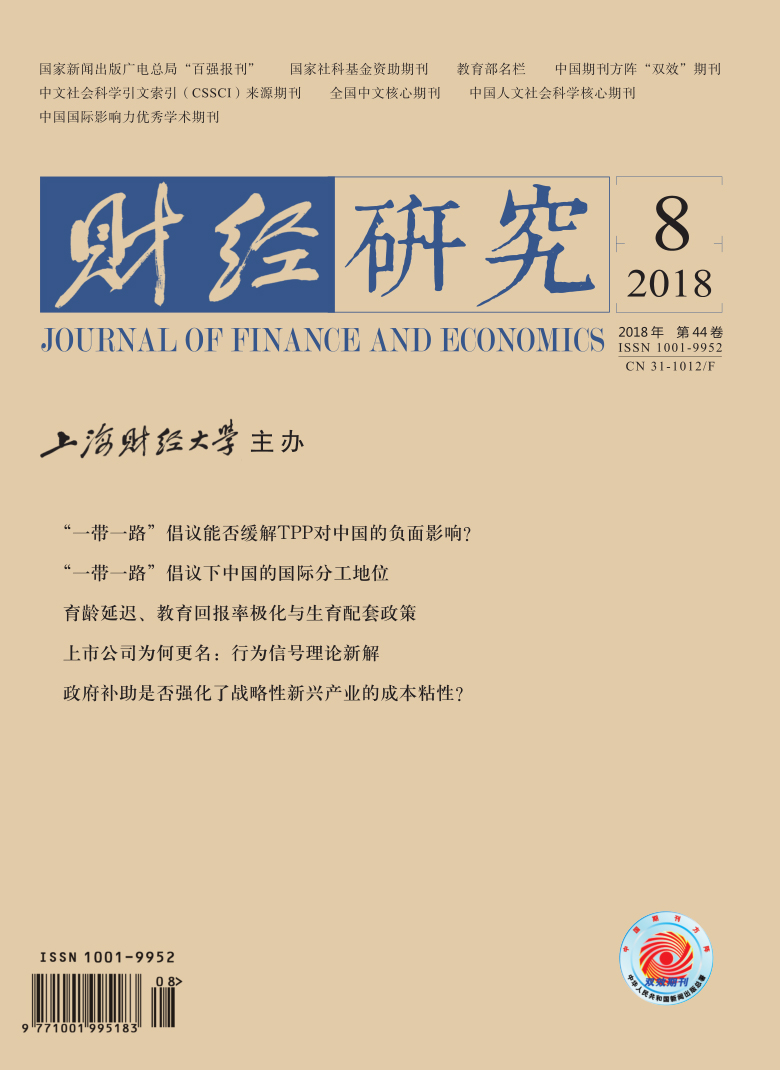The implementation of the universal two-child policy and the complete release of dividend policy reform need to actively improve all kinds of fertility supporting policies on the basis of the top-level design. From the perspective of motherhood delay, the paper provides empirical evidence on how to improve fertility supporting policies. Based on the revised Mincer wage function and using the CHIP2008 and CHIP2013 datasets, the impact and the mechanism of motherhood delay on the return of education are studied. The paper proposes a research hypothesis that motherhood delay will polarize the return of education. Theoretical analyses show that there are two reasons, active and passive delay, for women delaying childbearing age, which corresponds to the two results, increase and decrease of income. The difference comes from different jobs chosen due to education. The empirical results are consistent with theoretical analyses by econometric empirical studies about effects of motherhood delay on women’s income. Motherhood delay has polarized effects on the return of different education, which increases the return of high education and reduces the return of low education. In order to guarantee robustness of empirical results above, the paper performs deep analyses from four perspectives: extending the length of data, dealing with the ability variable omitted, changing the measure index of motherhood delay, and considering nonrandom behaviors of fertility. Specifically, CHIP2008 is added on the basis of CHIP2013, the problem of omitted abilities is solved using the instrumental variable method, motherhood delay is measured using continuous variables, and self-selection is solved using the framework of counterfactual analyses and the method of propensity score matching. The robust test shows that the empirical results still hold. Further studies show that polarized effects come from the difference in job stability and difficulty of professional title or leading roles. Specifically, women with high education mainly engage in jobs with more stable and easily obtaining professional titles or leading roles, while women with low education usually engage in jobs with the opposite. When choosing motherhood delay, the income of the former increases, while the latter decreases. Hence, the paper argues that different fertility supporting policies should be made among different education groups to improve the women childbearing willingness. Specifically, income compensation policies should be made for women with low education to overcome the " willing but unable to give birth” problem, and professional development compensation policies should be made for women with high education to settle the " able but unwilling to give birth” phenomenon.
 / Journals / Journal of Finance and Economics
/ Journals / Journal of Finance and EconomicsJournal of Finance and Economics
LiuYuanchun, Editor-in-Chief
ZhengChunrong, Vice Executive Editor-in-Chief
YaoLan BaoXiaohua HuangJun, Vice Editor-in-Chief
Motherhood Delay, Polarized Return of Education and Fertility Supporting Policies
Journal of Finance and Economics Vol. 44, Issue 08, pp. 31 - 45 (2018) DOI:10.16538/j.cnki.jfe.2018.08.003
Summary
References
Summary
[1]Deng F. A review of econometric problems and corrective approaches for estimating rates of return to education[J]. Education & Economy, 2013, (5): 42-48. (In Chinese)
[2]Huang Z L, Yao X G. A review of gender difference on return to education[J]. The Journal of World Economy, 2009, (7): 74-83. (In Chinese)
[3]Jia N, Gan L, Zhang J. Wage rate, the mommy trap and unobserved types[J]. Economic Research Journal, 2013, (5): 61-72. (In Chinese)
[4]Jian B X, Ning G J. Comparing study of the heterogenous return to education[J]. Economic Research Journal, 2013, (2): 83-95. (In Chinese)
[5]Li S, Ding S. Long-term change in private returns to education in urban China[J]. Social Sciences in China, 2003, (6): 58-72. (In Chinese)
[6]Liu Z Y. Why women’s return of education is higher than men? Analysis based on gender discrimination of wage[J]. Economic Science, 2008, (2): 119-128. (In Chinese)
[7]Sun Z J. Estimates of the return to schooling from a sample of Chinese twins[J]. China Economic Quarterly, 2014, (3): 1001-1020. (In Chinese)
[8]Ashenfelter O, Rouse C. Income, schooling, and ability: Evidence from a new sample of identical twins[J]. The Quarterly Journal of Economics, 1998, 113(1): 253-284. DOI:10.1162/003355398555577
[9]Blackburn M L, Bloom D E, Neumark D. Fertility timing, wages, and human capital[J]. Journal of Population Economics, 1993, 6(1): 1-30. DOI:10.1007/BF00164336
[10]Brandt L, Holz C A. Spatial price differences in China: Estimates and implications[J]. Economic Development and Cultural Change, 2006, 55(1): 43-86. DOI:10.1086/505722
[11]Bratti M, Tatsiramos K. The effect of delaying motherhood on the second childbirth in Europe[J]. Journal of Population Economics, 2012, 25(1): 291-321. DOI:10.1007/s00148-010-0341-9
[12]Buckles K. Understanding the returns to delayed childbearing for working women[J]. American Economic Review, 2008, 98(2): 403-407. DOI:10.1257/aer.98.2.403
[13]Caliendo M, Kopeinig S. Some practical guidance for the implementation of propensity score matching[J]. Journal of Economic Surveys, 2008, 22(1): 31-72. DOI:10.1111/joes.2008.22.issue-1
[14]De Brauw A, Rozelle S. Reconciling the returns to education in off-farm wage employment in rural China[J]. Review of Development Economics, 2008, 12: 57-71.
[15]Erosa A, Fuster L, Restuccia D. Fertility decisions and gender differences in labor turnover, employment, and wages[J]. Review of Economic Dynamics, 2002, 5(4): 856-891. DOI:10.1006/redy.2002.0195
[16]Kalist D E. Does motherhood affect productivity, relative performance, and earnings?[J]. Journal of Labor Research, 2008, 29(3): 219-235. DOI:10.1007/s12122-007-9034-x
[17]Li H Z, Luo Y. Reporting errors, ability heterogeneity, and returns to schooling in China[J]. Pacific Economic Review, 2004, 9(3): 191-207. DOI:10.1111/per.2004.9.issue-3
[18]Miller A R. The effects of motherhood timing on career path[J]. Journal of Population Economics, 2011, 24(3): 1071-1100. DOI:10.1007/s00148-009-0296-x
Cite this article
Liu Feng, Hu Chunlong. Motherhood Delay, Polarized Return of Education and Fertility Supporting Policies[J]. Journal of Finance and Economics, 2018, 44(8): 31-45.
Export Citations as:
For




 8830
8830  11068
11068

